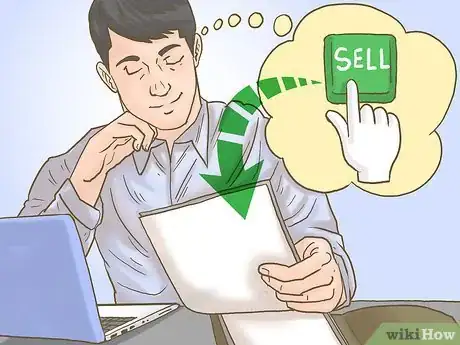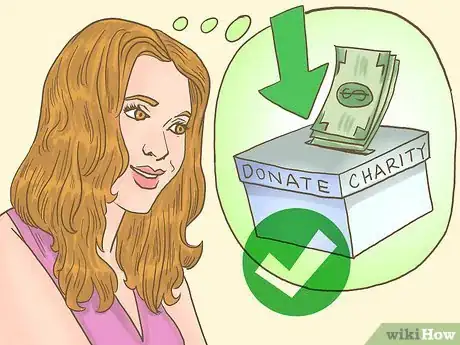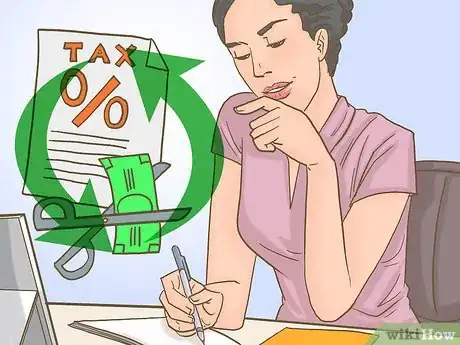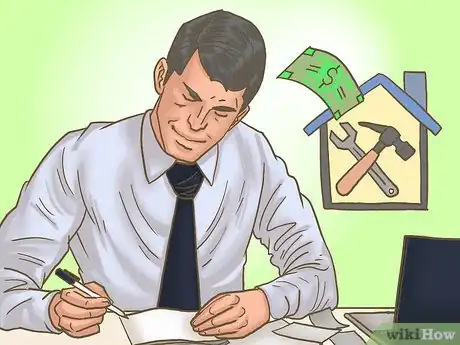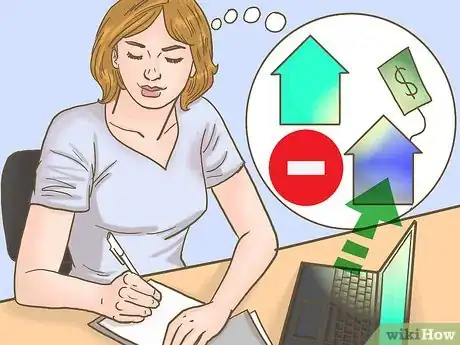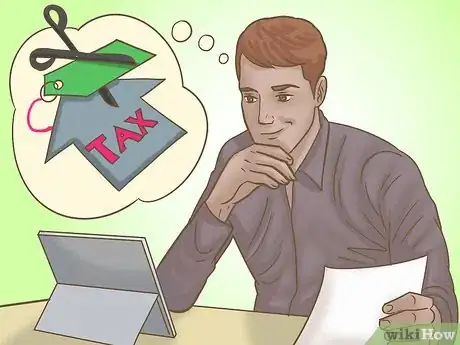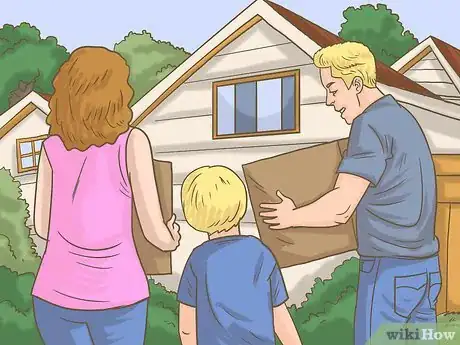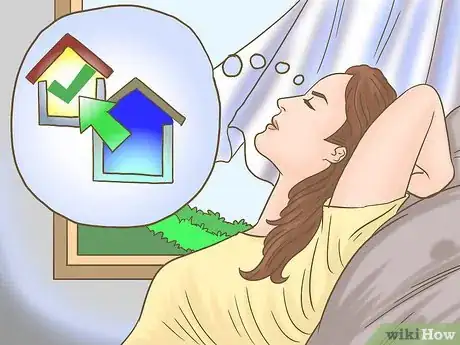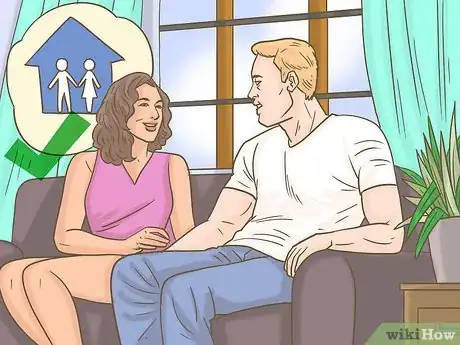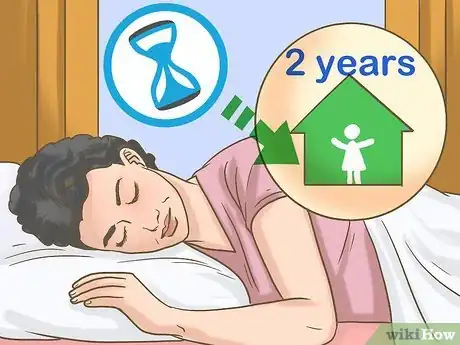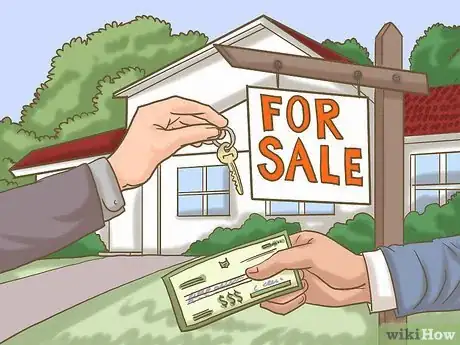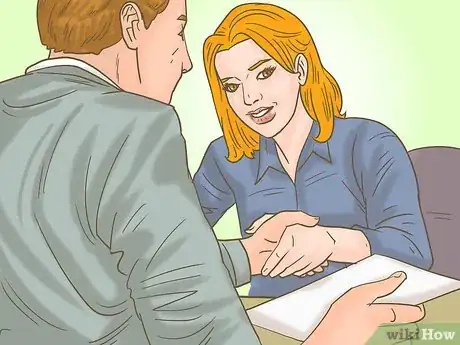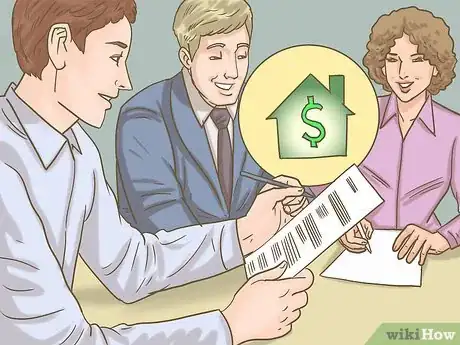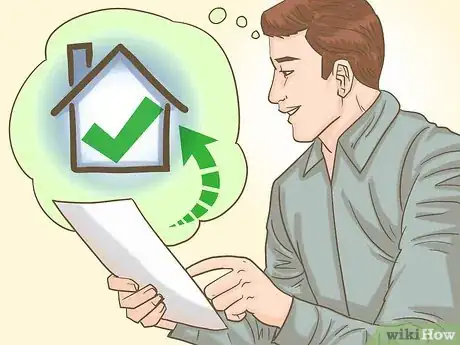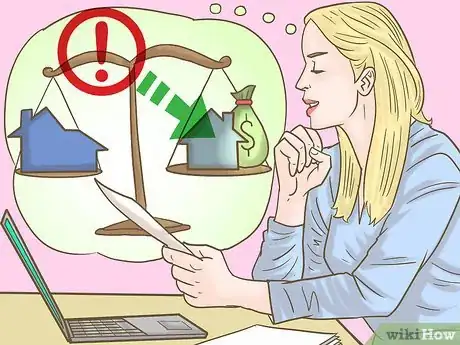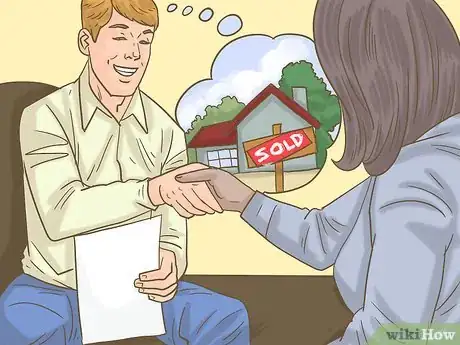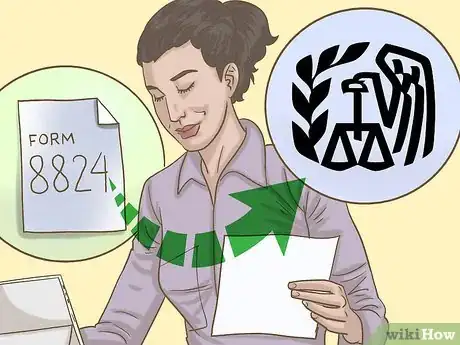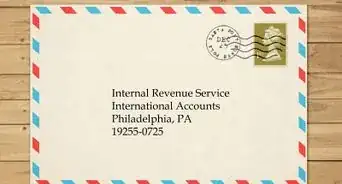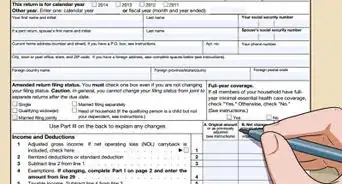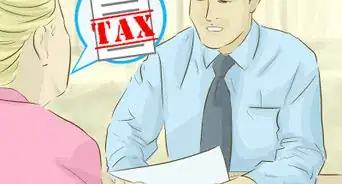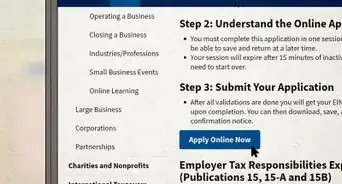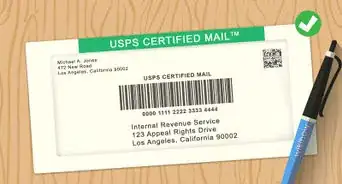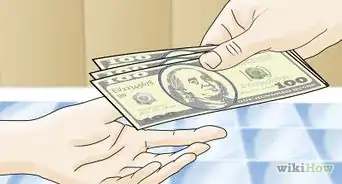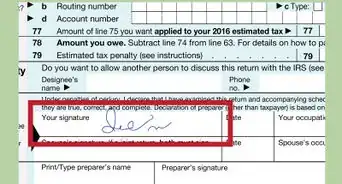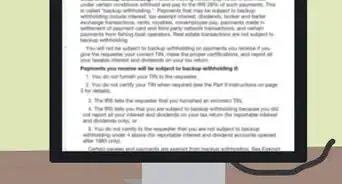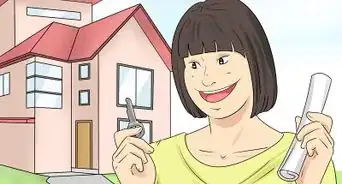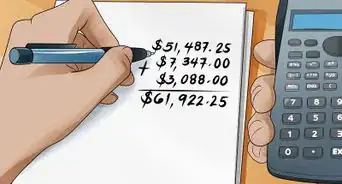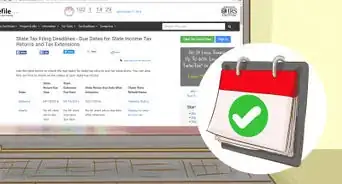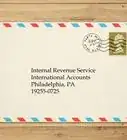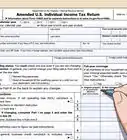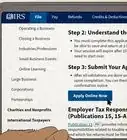This article was co-authored by Keila Hill-Trawick, CPA and by wikiHow staff writer, Jennifer Mueller, JD. Keila Hill-Trawick is a Certified Public Accountant (CPA) and owner at Little Fish Accounting, a CPA firm for small businesses in Washington, District of Columbia. With over 15 years of experience in accounting, Keila specializes in advising freelancers, solopreneurs, and small businesses in reaching their financial goals through tax preparation, financial accounting, bookkeeping, small business tax, financial advisory, and personal tax planning services. Keila spent over a decade in the government and private sector before founding Little Fish Accounting. She holds a BS in Accounting from Georgia State University - J. Mack Robinson College of Business and an MBA from Mercer University - Stetson School of Business and Economics.
There are 10 references cited in this article, which can be found at the bottom of the page.
This article has been viewed 55,729 times.
Many countries, including the US, the UK, Canada, and Australia, assess capital gains taxes on any profit you make from the sale of a home. While the sale of your primary residence typically is excluded, you usually must pay capital gains taxes if you make a profit on the sale of your secondary home. However, there are ways you can reduce, if not completely eliminate, capital gains taxes on the transaction. In the US, you also have the option of making a like-kind exchange to defer capital gains taxes.
Steps
Reducing Capital Gains Tax Liability
-
1Sell off losing investments. Your capital gains are offset by your capital losses. If you have some investments that have decreased in value since you bought them, selling them would reduce your total capital gains.[1]
- For example, suppose you own some stock that you purchased for $50,000. It is now worth $10,000. If you sold that stock for $10,000, you would have a $40,000 loss. If you made $30,000 on the sale of your second home, that $40,000 loss would wipe out your profit on the sale of the house, and you wouldn't owe any capital gains taxes.
-
2Donate a portion of the profits. If you don't need the money for any other purpose, you can make a charitable donation of all or part of the profits you made on the sell of your second house. Charitable donations typically are tax deductible.[2]
- Claiming the charity tax deduction may decrease your overall tax liability, but it doesn't actually avoid capital gains tax. You would still be assessed capital gains taxes. However, the charitable deduction may lower the amount of taxes you actually owe.
Advertisement -
3Do what you can to reduce your taxable income. Many governments don't assess capital gains taxes if you have relatively low income. Even if you have a higher income, you may be able to take advantage of various credits and deductions to reduce the amount of income that is subject to taxation.[3]
- There are also various investments, including types of retirement accounts, that can lower your taxable income.
- Speak to a financial advisor for advice on strategies that could work for you to reduce your taxable income.
- In the US, your capital gains rate is determined by your marginal tax rate. If your marginal tax rate is 10 or 15 percent, you do not have to pay taxes on capital gains.
-
4Keep records of home improvements and selling expenses.[4] You can deduct any expenses involved in the maintenance or selling of your second home to lower your capital gains taxes. Capital gains taxes are assessed on profit you make on the sale of the home. Profit is defined as the money you made after the original purchase price of the home and all expenses are taken into consideration.[5]
- For example, suppose you bought your second home for $100,000, and subsequently made $50,000 in improvements on the home. If you then sold the home for $150,000, you wouldn't owe any capital gains taxes because you didn't actually make a profit.
-
5Deduct other ownership expenses for your second home. If you had a mortgage on your second home, you typically can also deduct the mortgage interest to lower your capital gains taxes. Other expenses, including insurance and basic maintenance, can also be deducted.[6]
- You can only deduct these expenses to the extent of your gain. However, if your ownership expenses are greater than the amount of profit you made on the sale of the home, you wouldn't owe any capital gains taxes.
- Only deduct expenses for which you have receipts or other records. For example, if you have an insurance statement from your insurance company listing the premium payments you've made, you'd be able to deduct those amounts.
-
6Find out if you're eligible for a discount. Many countries offer ways for you to qualify for a reduced rate on your capital gains taxes. Typically these discounts are offered as an incentive to behave in ways that benefit society as a whole.[7]
- For example, Australia provides an additional discount on capital gains for investors who invest in qualifying affordable housing.
- If you hold the property for more than a year before you sell it, you also are eligible for a discounted rate in many countries.
Making the Home Your Primary Residence
-
1Move yourself and your family into your second home. In some countries, including the US and Canada, you can turn your second home into your primary residence and avoid most, if not all, of the capital gains taxes on the sale of the home.[8]
- At most, you can only have one home as your primary residence. This means if you make the decision to live in your second home as your primary residence, you will lose any tax deductions or exemptions you were claiming for your first home. For example, if you have a mortgage on your first home, you would not be able to deduct mortgage interest after moving into your second home.
- In the UK, you must have lived in the house as your primary residence for the entire time you've owned the property. You wouldn't be able to avoid capital gains tax on any profits you made off the sale of a second home simply by moving into it.[9]
-
2Establish your second home as your primary residence. Check the rules in your country (typically in your tax code) to find out what criteria are necessary for a house to qualify as a primary residence. Generally, your primary residence is where you spend most of your time, have your personal belongings, and collect mail.[10]
- Using that address to register to vote also may be considered an indication of your attempt to establish a primary residence there.
- Primary residence typically isn't based on any one factor, or even a specific combination of factors. Every situation is evaluated according to individual circumstances.
-
3Spend most of the year in your second home. Typically, you need to spend at least 50 percent of your time in a house if you want to claim it as your primary residence. Different countries may have more specific requirements.[11]
- In the US, different states have different residency requirements. If you are planning on spending at least part of the year in your first home, check these requirements first.
- If your second home is in another country, this method may not work for you. Generally speaking, your primary residence needs to be in the same country where you file taxes.[12]
-
4Live in your second home for at least 2 years. Before you sell your home, you need to live there long enough to establish it as your primary residence. Typically this is at least 2 years. You may still owe some capital gains taxes when you sell the home, but at least a portion of any profit would be exempt from taxes.[13]
- In the US, you must live in your second home for at least 2 years to get any exemption at all from capital gains taxes when you sell the home. However, you may still owe taxes for the portion of time the home was not your primary residence. For example, if you owned your second home for 4 years, and lived in it as your primary residence for 2 years, 50 percent of your capital gains would be exempt.
-
5Sell your second home as your primary residence. Many countries don't assess capital gains taxes on the sale of your primary residence, provided the home meets the basic requirements. Other countries carve out an amount of profit you can take that is exempt from capital gains taxes.[14]
- In the US, up to $250,000 in profits from the sale of a primary residence is excluded if you own the home as a single person. If you are married filing jointly, up to $500,000 in profits is excluded from capital gains taxes.
Swapping Your Second Home for Another Property
-
1Hire a qualified intermediary to facilitate the transaction. Because like-kind exchanges are complex and highly regulated, there are specific corporations that specialize in facilitating these transactions. You must hire a business that you have not had any relationship with in the 24 months before the exchange.[15]
- While an attorney or real estate broker could potentially recommend a firm for you to use, your attorney or broker cannot act as a qualified intermediary for you, because you have an existing relationship.
- Research your intermediary's background carefully before hiring them. If the transaction does not meet the necessary requirements, you will owe capital gains taxes.
-
2Sell your second home to a third party. With the help of your intermediary, you will find a buyer for your second home. Your intermediary stands in your shoes as the seller of the property and closes on the house. All money received from the sale of the house is placed in escrow.[16]
- You will have very little to do with this stage of the process. You cannot receive any cash, or that would be considered income to you, and you would potentially owe capital gains taxes.
-
3Identify a similar property to your second home. Once the funds are in escrow, you have 45 days to find a property to replace your second home. You have 180 days from the date of closing on your home.[17]
- As with the first transaction, the intermediary stands in for you as the buyer. The funds in escrow from the sale of your home are used to purchase the replacement property.
- The definition of "similar" is fairly broad. Essentially, you simply have to find a piece of real estate with approximately the same value as your second home. It need not be a home – it could be a vacant lot or a commercial building.
-
4Avoid receiving any "boot" in the exchange. Sometimes swaps include an additional cash payment, known as a "boot." If you receive cash along with the swap, it is not considered a like-kind exchange and you will still owe capital gains taxes, at least on the amount of the boot, if not on your total gain.[18]
- If you exchange a less valuable property for a more valuable property and pay a boot yourself, you won't incur any capital gains taxes (because you were the one paying the money, not receiving it).
-
5Finalize ownership of the replacement property. Your qualified intermediary will purchase the property on your behalf, and then transfer ownership of the property to you. Once your name is on the deed as owner of the replacement property, you can do whatever you want with it. You will not owe any capital gains taxes until you sell the replacement property.[19]
- The entire transaction must be completed within 180 days of the date you sold your second home to qualify as a like-kind exchange with the IRS.
- When (and if) you sell the replacement property, you will be credited with the capital gain that was present in your second home. You will be taxed on that capital gain, as well as any additional profit earned on the sale of the property.
- If you own the property until you die, any capital gains would be wiped out. Whoever inherited the property from you would not owe any capital gains taxes.[20]
-
6File Form 8824 with the IRS. This form lets the IRS know that you've completed a like-kind exchange of property, and provides details of the exchange. Your qualified intermediary will produce this and other required tax and legal documents for you.[21]
- You may also have to file similar forms with your state tax authority to avoid state capital gains taxes on the transaction.
References
- ↑ https://www.moneysense.ca/spend/real-estate/vacation-homes/how-to-avoid-or-lower-capital-gains-tax-owed/
- ↑ https://www.moneysense.ca/spend/real-estate/vacation-homes/how-to-avoid-or-lower-capital-gains-tax-owed/
- ↑ https://www.moneycrashers.com/reduce-avoid-capital-gains-tax-property-investments/
- ↑ Keila Hill-Trawick, CPA. Certified Public Accountant. Expert Interview. 30 July 2020.
- ↑ https://www.moneycrashers.com/reduce-avoid-capital-gains-tax-property-investments/
- ↑ https://www.finder.com.au/capital-gains-tax-selling-property
- ↑ https://www.finder.com.au/capital-gains-tax-selling-property
- ↑ https://www.moneysense.ca/spend/real-estate/vacation-homes/how-to-avoid-or-lower-capital-gains-tax-owed/
- ↑ https://www.gov.uk/tax-sell-home
- ↑ https://www.ato.gov.au/General/Capital-gains-tax/Your-home-and-other-real-estate/Your-main-residence/
- ↑ https://www.realtor.com/advice/sell/selling-vacation-home-taxes/
- ↑ https://www.moneysense.ca/spend/real-estate/vacation-homes/how-to-avoid-or-lower-capital-gains-tax-owed/
- ↑ https://www.investopedia.com/articles/personal-finance/013014/tax-breaks-secondhome-owners.asp
- ↑ https://www.realtor.com/advice/sell/selling-vacation-home-taxes/
- ↑ https://www.investopedia.com/articles/mortgages-real-estate/08/like-kind-property-exchange.asp
- ↑ https://www.investopedia.com/articles/mortgages-real-estate/08/like-kind-property-exchange.asp
- ↑ https://www.marketwatch.com/story/this-tax-move-has-made-a-lot-of-real-estate-investors-rich-2017-07-06
- ↑ https://www.marketwatch.com/story/this-tax-move-has-made-a-lot-of-real-estate-investors-rich-2017-07-06
- ↑ https://www.investopedia.com/articles/mortgages-real-estate/08/like-kind-property-exchange.asp
- ↑ https://www.marketwatch.com/story/this-tax-move-has-made-a-lot-of-real-estate-investors-rich-2017-07-06
- ↑ https://www.investopedia.com/articles/mortgages-real-estate/08/like-kind-property-exchange.asp
About This Article
To avoid capital gains tax on the sale of your second home, consider making the home your primary residence or exchanging it for another property. In some countries, like the U.S. and Canada, you can make your second home your primary residence to reduce your capital gains tax. However, you’ll usually need to spend more than half of your time there and live there for 2 years before you can reduce your capital gains tax. Keep in mind you’ll still be liable for capital gains tax made before you moved. Alternatively, if you buy another property of a similar value to your second home within 180 days, you can avoid capital gains tax. To do this, you’ll need to hire an intermediary who you have no previous relationship with to facilitate the transaction. For more tips, including how to deduct expenses you paid for your second home from your capital gains tax, read on!
